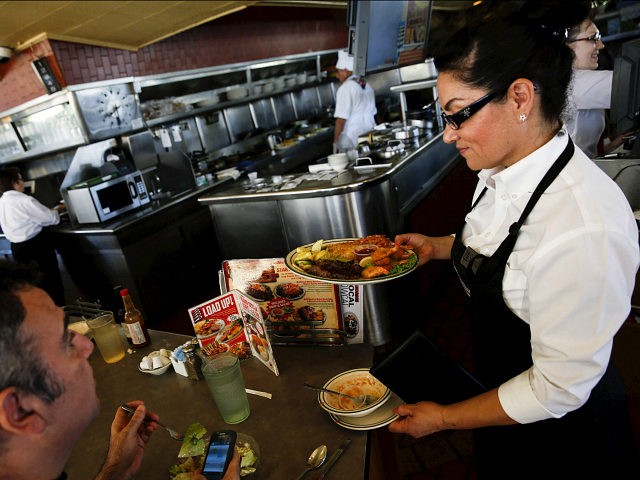A new review of the restaurant industry in San Diego, California, shows that since its minimum wage hike to $11.50 per hour, the city has lost a whopping 4,000 restaurant jobs.
Just over a year ago, the city of San Diego decided to skip ahead of the state’s rules to raise the minimum wage to $10.25 per hour and went straight to $11.50. But since that decision, a look at the workers most affected by the new wage seems to show it has hurt, rather than helped them.
In most places in the country, those most affected by the minimum wage are in the restaurant industry. In San Diego, for instance, about half of all workers earning minimum wage are food service workers, according to Reason.com.
But since last year’s wage hike, restaurants have shed jobs or ceased expansion to make new jobs at a very high rate. “San Diego has dropped sharply, with perhaps as many as 4,000 jobs lost, or never created in the first place.” Reason states.
“If job growth in the restaurant sector had just kept pace with the state’s performance … the industry could have created 5,200 jobs instead of the 1,300 that took place,” Lynn Reaser, chief economist of the Fermanian Business & Economic Institute at Point Loma Nazarene University, told The San Diego Union-Tribune.
As Forbes magazine’s Tim Worstall recently noted, a similar situation was seen in Seattle after the city ordered a hefty raise in its minimum wage.
Worstall also pointed out that, thus far, all economic evidence tends to show that a higher minimum wage costs jobs and hurts the low-end labor force instead of helping it.
A look at the evidence, Worstall says, shows that a rise in minimum wage cuts “restaurant employment compared to the no wage rise scenario. That seems to be happening,” he adds.
“Score two so far for conventional labor economics then,” Worstall concludes.
Follow Warner Todd Huston on Twitter @warnerthuston, or email the author at igcolonel@hotmail.com.

COMMENTS
Please let us know if you're having issues with commenting.